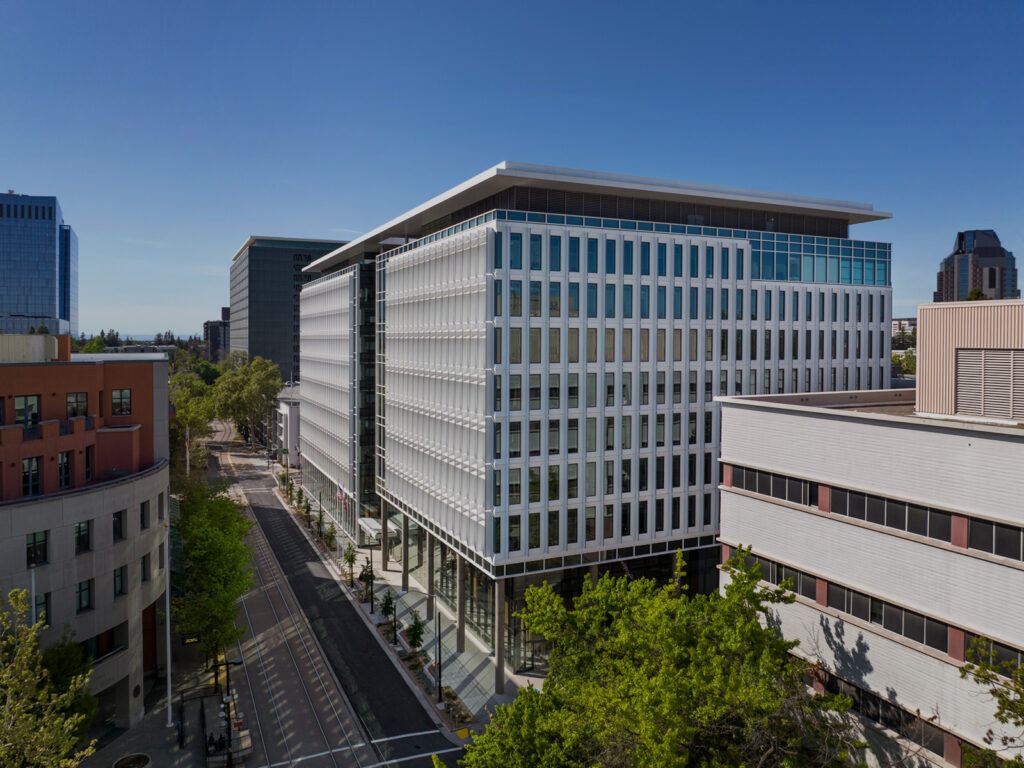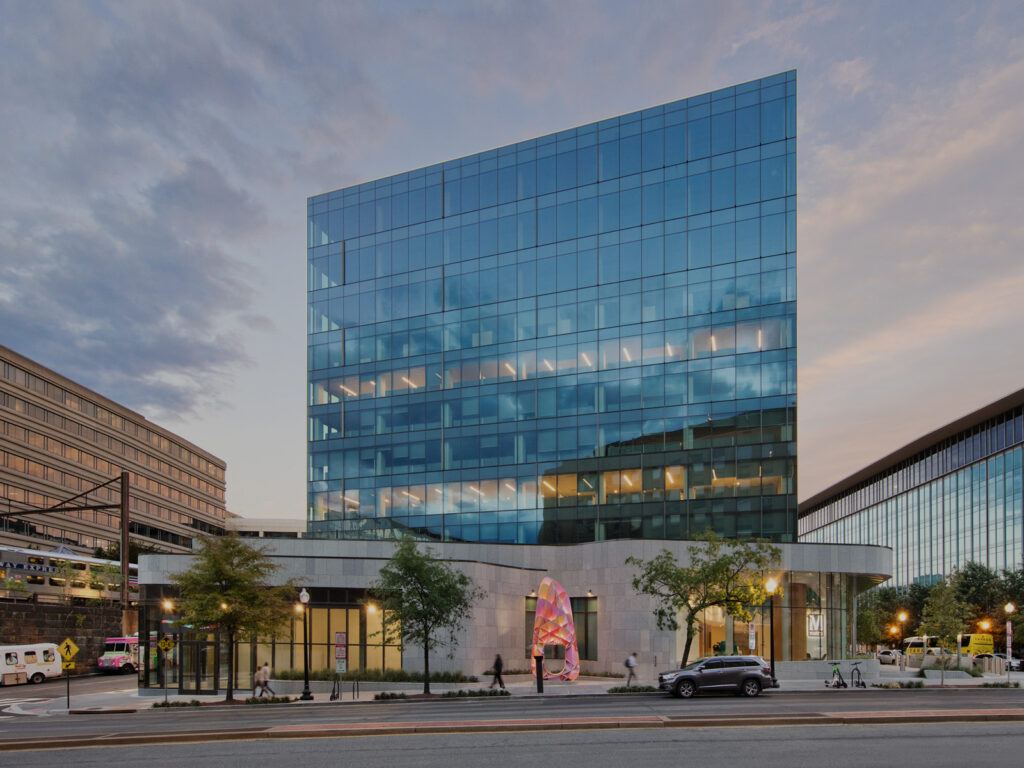
Several of the 69 AEC firms endorsing the Biden-Harris Administration’s definition of zero-emissions buildings are members of the Design-Build Institute of America (DBIA), including CannonDesign; CLAYCO; HKS; Integrus; Leo A Daly; LPA; Opsis Architecture; SERA; Siegel & Strain Architects; Skidmore, Owings & Merrill; SmithGroup; Wight & Company and WRNS Studio. Their signatures demonstrate the collective commitment of DBIA-affiliated firms toward a shared vision of a sustainable, zero-emission built environment. Emphasizing sustainability as an up-front goal, DBIA’s Position Statement on Sustainability highlights the importance of clear articulation of sustainability goals by Owners, specifying relevant characteristics and budget considerations.
“Building sustainably should be considered as an up-front goal shared by the stakeholders of any project. Owners should clearly state the sustainability goals for the project in their solicitations, and emphasize which sustainable characteristics are most relevant or desirable, and which strategies may not be appropriate for the project. Design-build teams should clearly understand an Owner’s sustainability goals and project vision.” — Excerpt from DBIA Position Statement: Sustainability
The joint statement, led by design firm OPAL, expressed enthusiastic support for the Biden-Harris Administration’s release of a national definition for zero-emissions buildings. This statement emphasizes the need for a consistent industry-wide vision, anticipating that it will foster more uniform policies, incentives, certification targets and aspirational goals for projects that accelerate the crucial shift to clean energy. The signatories emphasize the federal definition’s potential to unlock investments in emissions-effective and resilient buildings, citing positive impacts on communities. Targeting major operational emissions through high energy efficiency and on-site emission elimination, the definition seeks to rapidly reduce nearly a third of U.S. greenhouse gas emissions.

A focus on zero-emissions and net-zero principles is vital in the design-build sector, exemplified by projects like the 2023 Project of the Year Award winner, the 1021 O Street State Office Building. This project not only prioritizes sustainability but also serves as a trailblazer as California’s first all-electric building, achieving Net-Zero Energy, Net-Zero Carbon and LEED Platinum status. The project’s commitment to sustainable materials, renewable energy and innovative design aligns seamlessly with the goals outlined in the coalition’s statement. It sets a precedent for how the design-build approach can contribute to creating environmentally conscious structures, showcasing over 150 products with Health Product Declarations, 75 with material ingredient reporting and 100% FSC certified wood.
In addition to 1021 O Street, another noteworthy example is the Washington Metropolitan Area Transit Authority (WMATA) DC Headquarters, recipient of the 2023 Chair’s Award. This project achieved LEED Platinum status. The deliberate choices of site and building reuse significantly minimized the carbon footprint, and meticulous selections in building systems, materials and stormwater management practices further contributed to sustainability achievements. Notably, stormwater management features surpassed requirements, and energy optimization efforts resulted in a reduction equivalent to 534 fewer cars driven over a year.
The commitment of DBIA member firms to the Biden-Harris Administration’s zero-emissions definition extends beyond an industry alignment — it’s a resounding pledge shaping a sustainable, emission-free future. Beyond signatures on a statement, it’s a collective acknowledgment and promise reflected in projects like the 1021 O Street State Office Building and the WMATA DC Headquarters. These award-winning projects showcase not just innovative design-build approaches but a tangible dedication to a greener, more resilient built environment. Additionally, having DBIA member firms among the signatories highlights the integral role of design-build in advancing sustainability, emphasizing their influential contribution to shaping an environmentally conscious and resilient future in the built environment.

